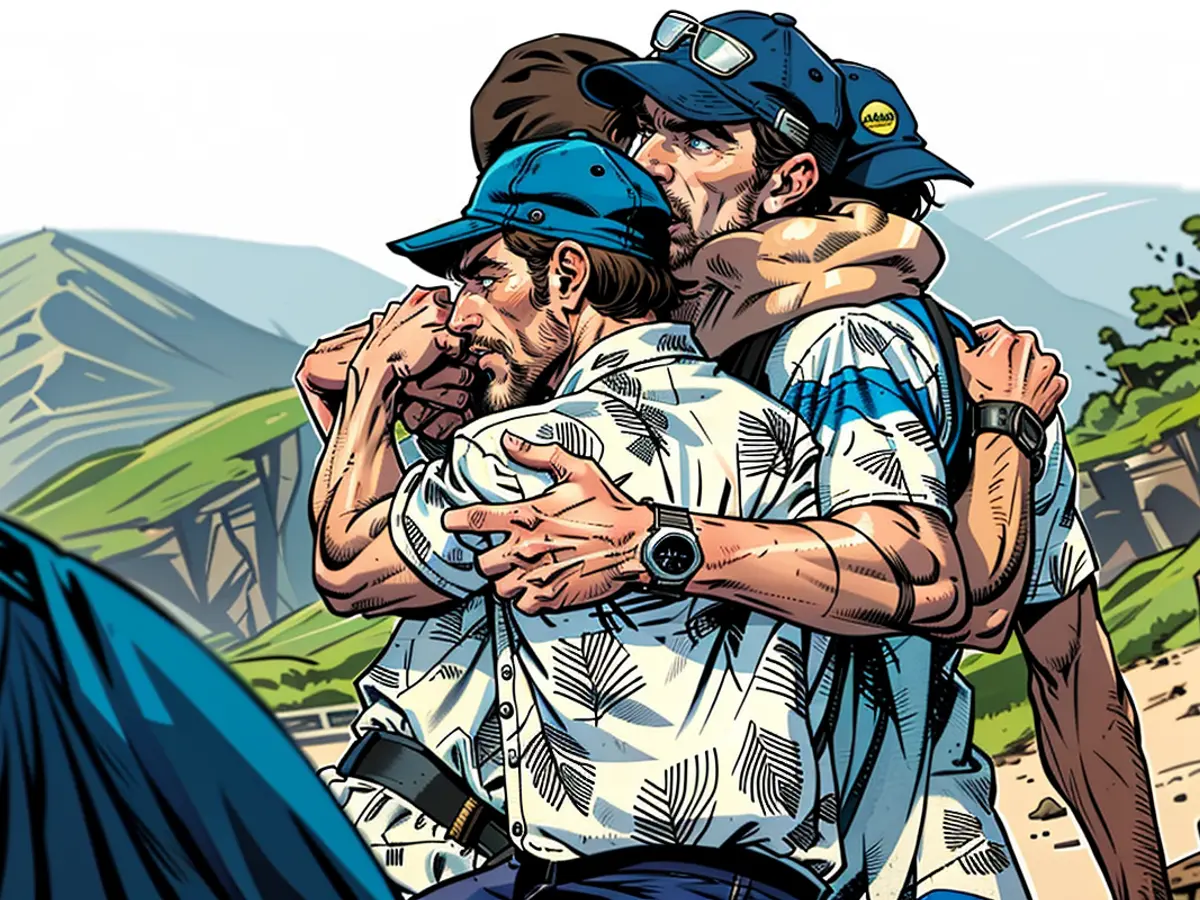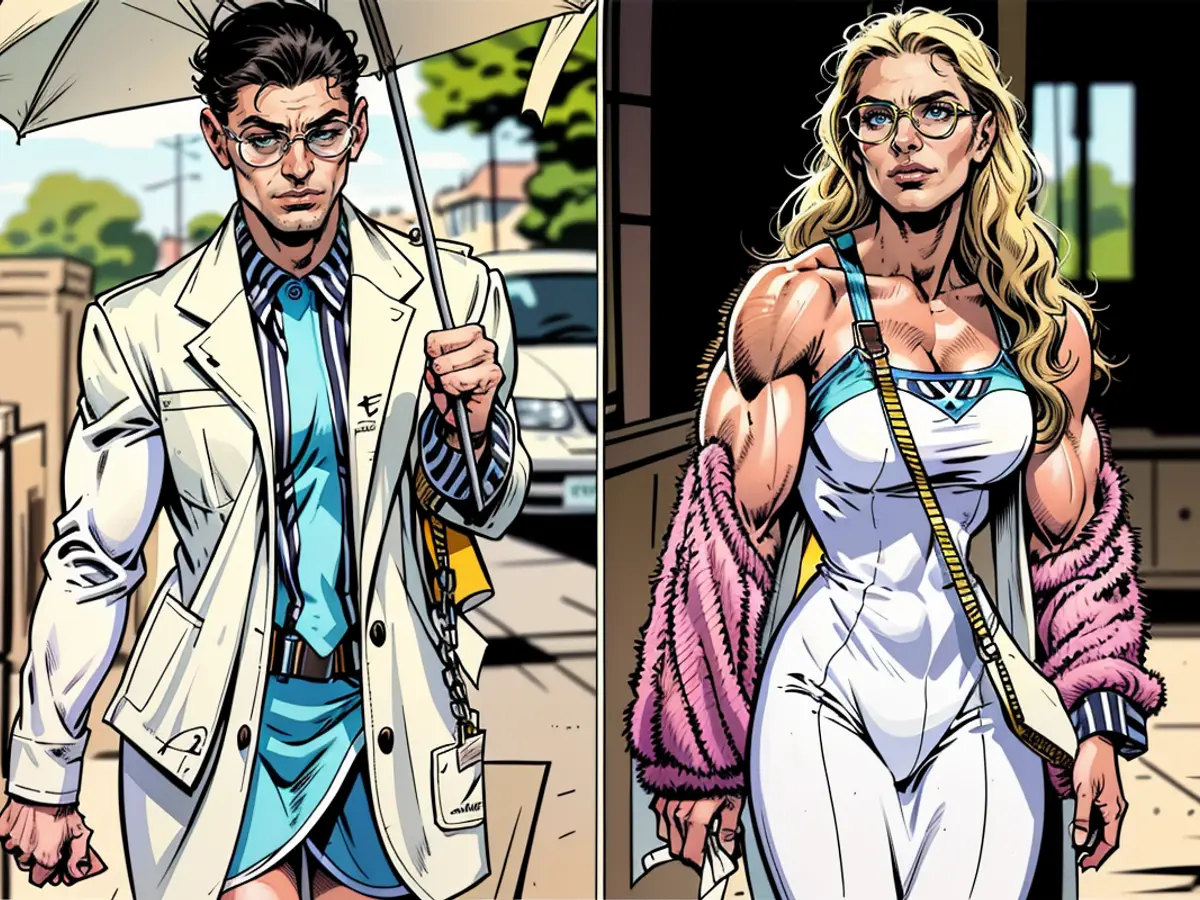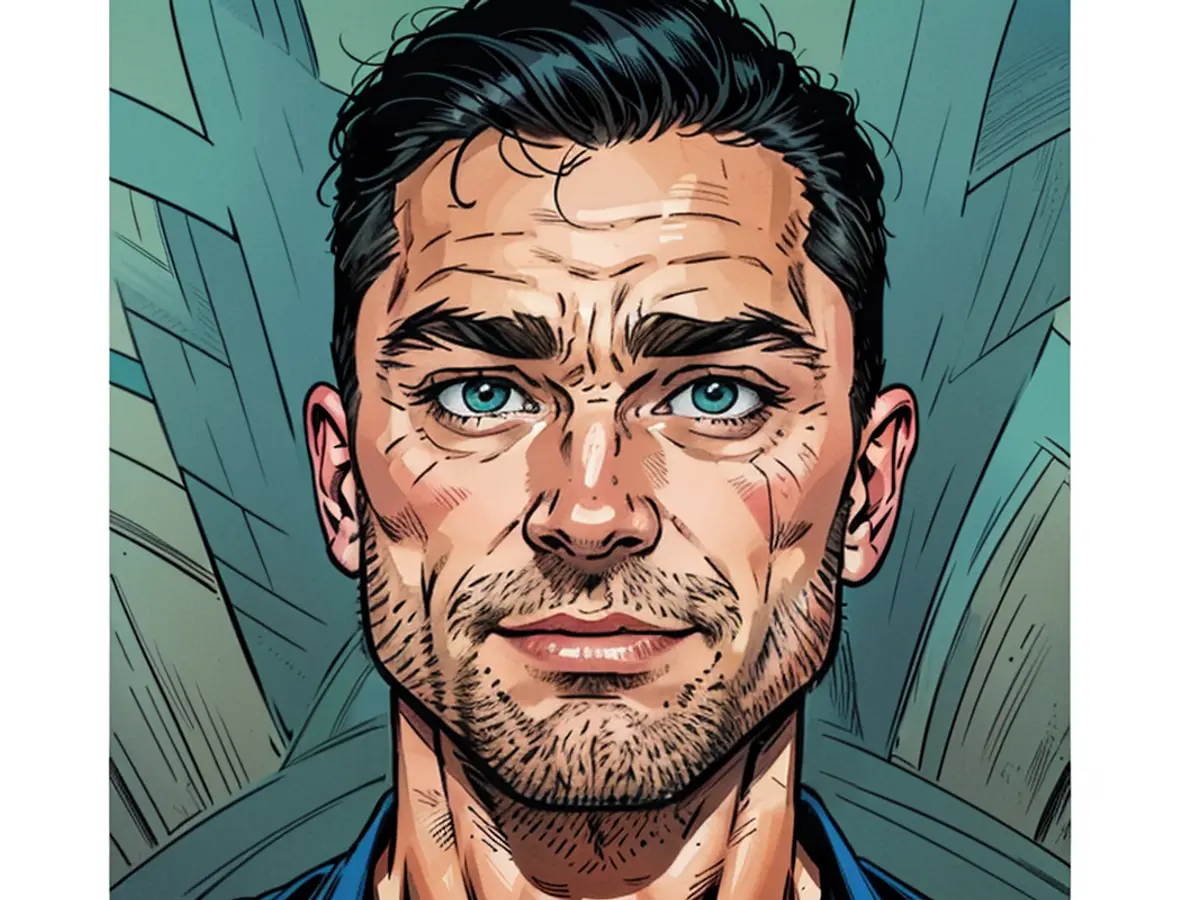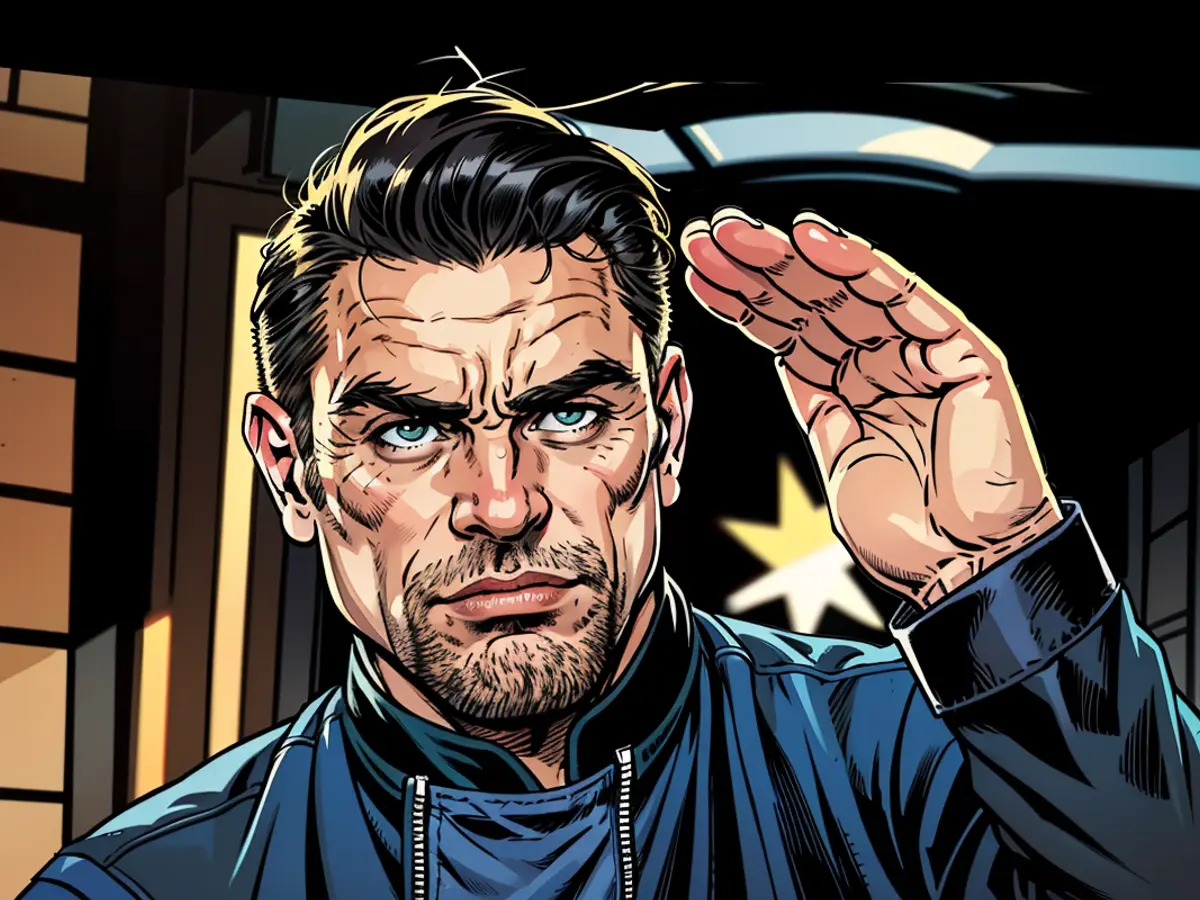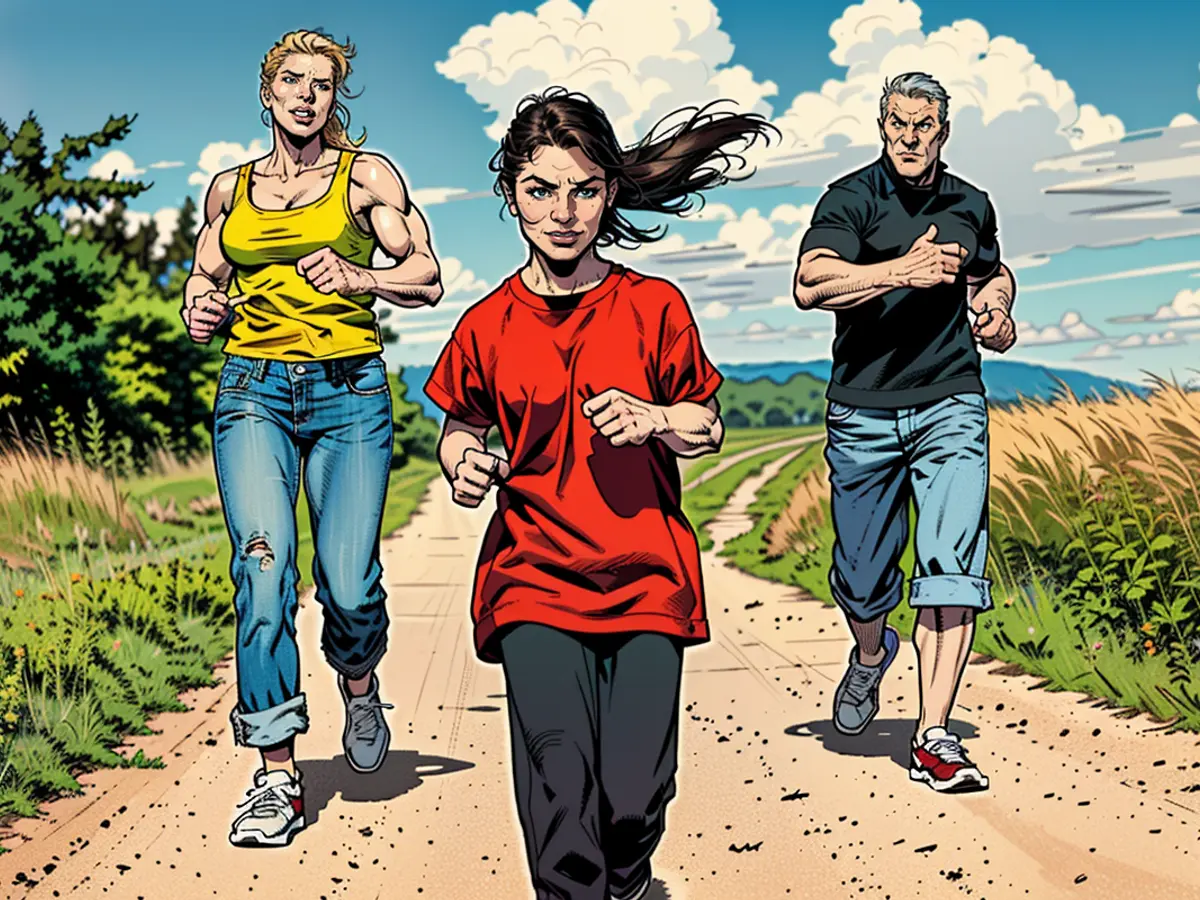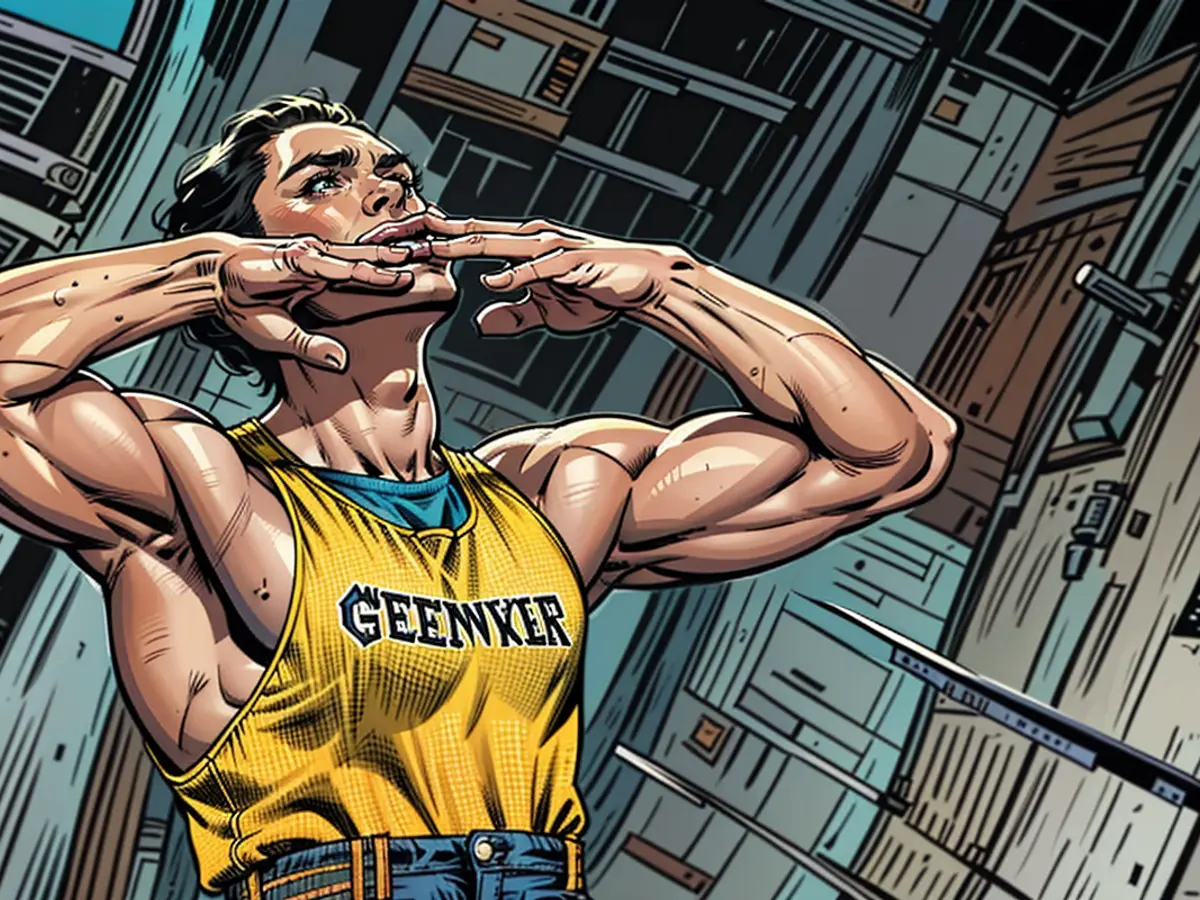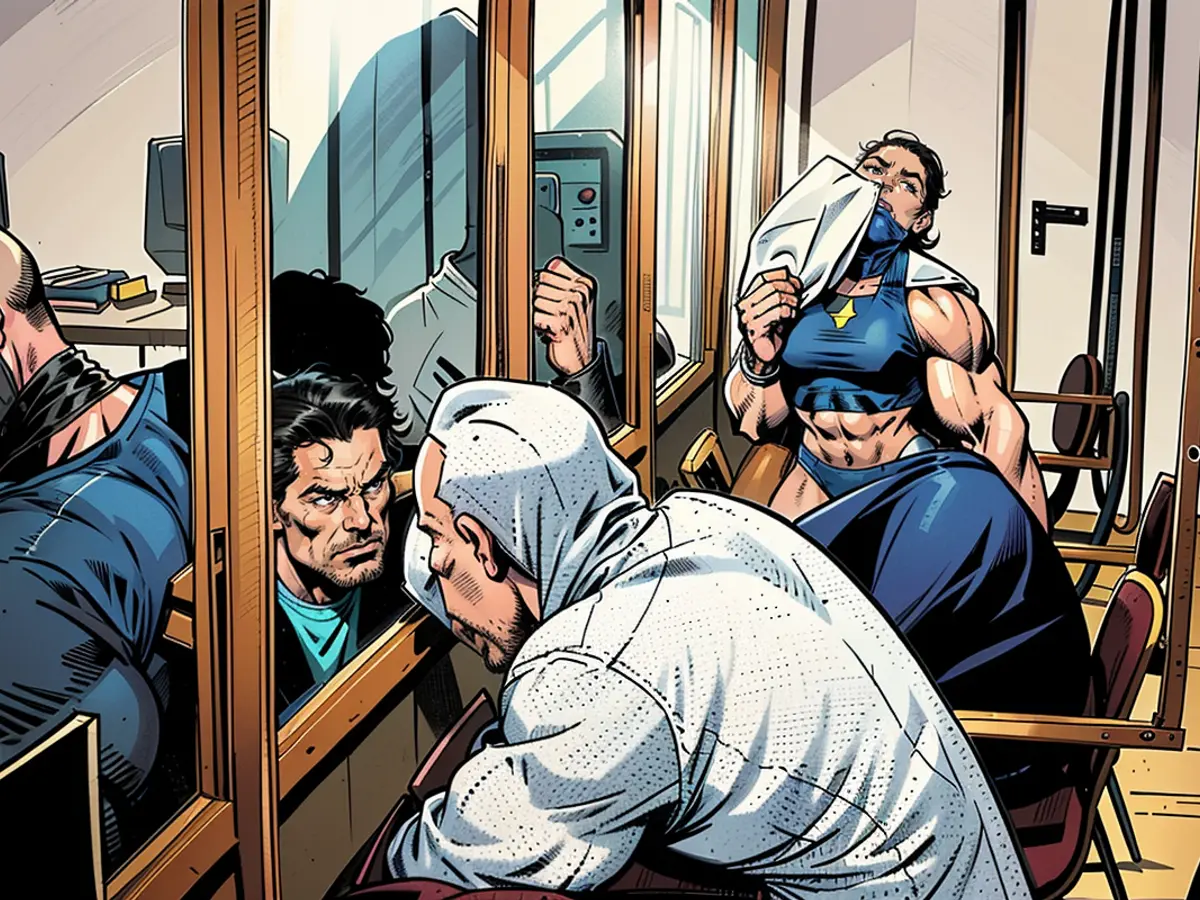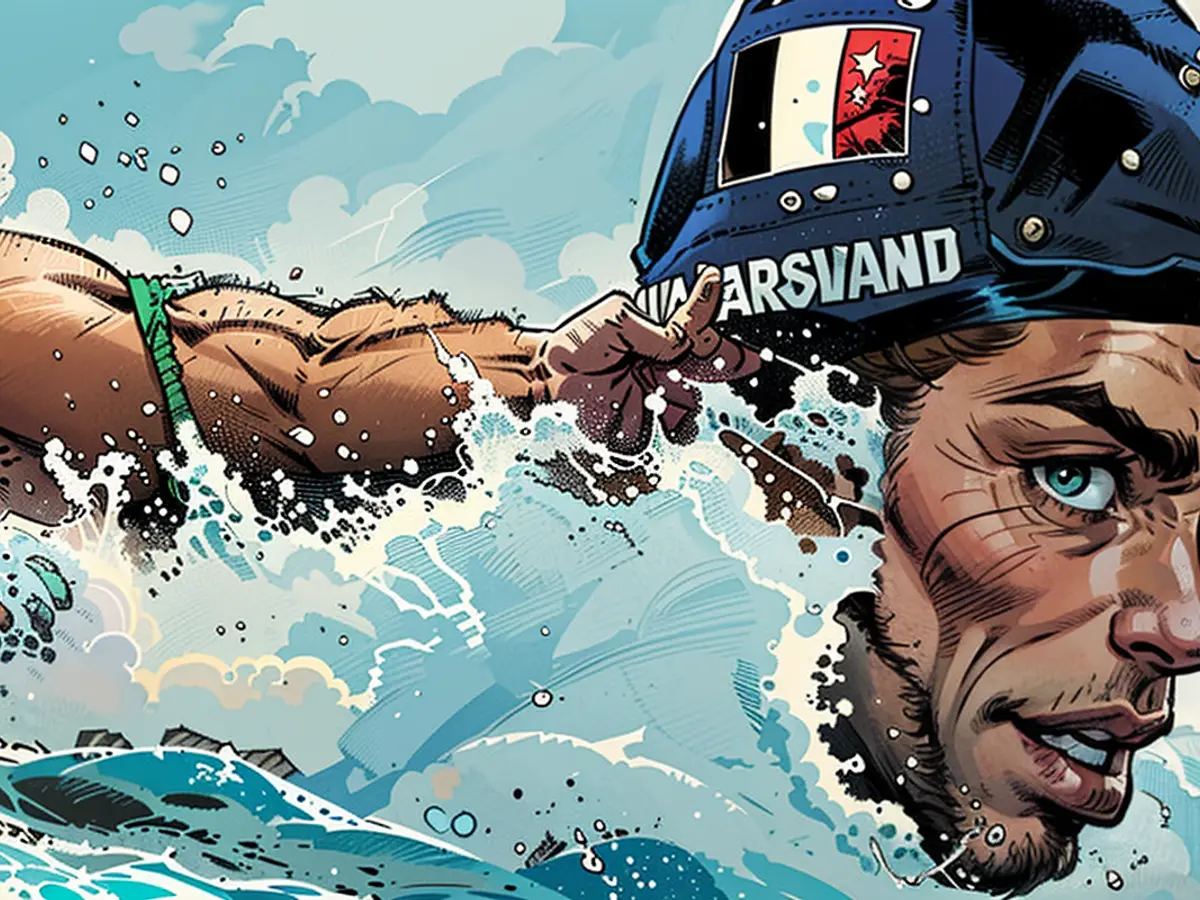Patrick Morrissey didn’t let Parkinson’s disease stop him from rowing across the Pacific Ocean
To understand exactly how Morrissey, a 53-year-old father of two and now the first person with Parkinson’s to row across the Pacific, ended up at the center of a story that has all the makings of those live-action Disney movies that remind us how incredible human beings can be, we have to go back to 2019, when it started with a tremor.
Well, if Morrissey’s being honest, it started a little before that.
Something had been “off” — be it his balance or brain fog — for a while. He knew he couldn’t shrug off the tremor as a simple symptom of aging, however, and in late 2019, a doctor at the Mayo Clinic told him three words that carry a collective weight that those in healthy bodies can neverfully understand: Parkinson’s, incurable, progressive.
“I was in a little bit of a dark space trying to get a grip around what that meant to me,” Morrissey remembered in a recent interview with CNN, 12 days after he had set foot back on land, immediately digging into a meal of BBQ chicken and ribs, his first non-freeze dried food since setting forth on their adventure on June 8.
His diagnosis came just before the coronavirus pandemic forced the global population indoors, which helped Morrissey keep his situation private.
“For the next couple of years, not very many people knew I had Parkinson’s,” he said.
Brendan Cusick, eventual row team captain and Morrissey’s longtime friend, was in the inner circle.
They met at work and live two houses away from each other in Durango, Colorado. They didn’t plan to be neighbors but this “small world,” as Cusick explained it, saw fit to bring them even closer together, both in proximity and bond.
Cusick, 50, noticed Morrissey’s tremor during one of their frequent coffee meet-ups. He’d known people with the disease and can admit now that, at the time, he had a suspicion of what the cause was before his friend was diagnosed.
After Morrissey became aware of his disease, exercise became “basically non-negotiable in my life” as it is known to help improve mobility for people with the condition. Morrissey didn’t mind; he was a former Division I college wrestler who as an adult, enjoyed everything from mountain biking to skiing.
But his first time on a rowing machine was after he’d asked to be a part of Cusick’s four-man team, called Human Powered Potential, which he was told would be raising money for the Michael J. Fox Foundation and Parkinson’s Disease research.
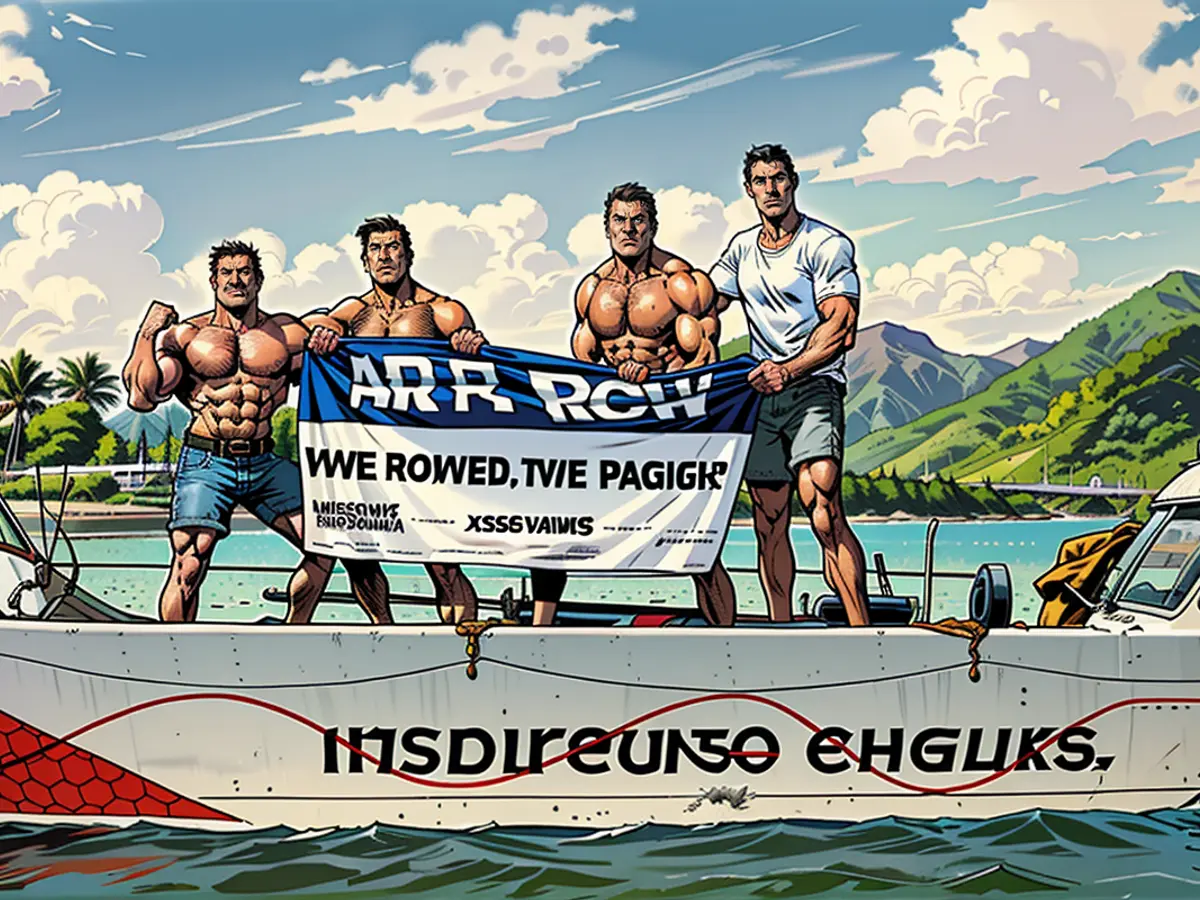
Peter Durso, a 49-year-old emergency physician from Coeur d’Alene, Idaho, explained that Morrissey had initially been asked to be involved with the team as a spokesman for the Parkinson’s community.
“Then he lost his mind like the rest of us and decided he wanted to row across an ocean,” Durso told CNN via email.
The team had the backing of an anonymous donor, who offered to match donations 3 to 1, turning, say, a donation of $25 into $100.
While their first goal was to raise $1.2 million, they’ve in fact raised over $28 million. Now, they’re shooting for $41 million, in honor of their days spent on the ocean.
“It’s something special that has happened from the beginning and I can’t put my finger on it, but there was a reason why this all came together,” Morrissey said. “[I think it’s] about bringing awareness and finding a cure. And I always talk about finding a cure in my lifetime — not just finding a cure.”
A greater purpose
To survive the World’s Toughest Row, an annual event of which there are two editions (one in the Atlantic and one in the Pacific), Team Human Powered Potential would row alternating shifts, 24 hours a day. Two men would row two hours while the two others would rest for the same duration. Rinse, repeat.
Those who were not rowing tried to sleep, eat and do critical tasks like making water, something that could only be done when the sky was clear and the sun high enough to power the equipment they used to desalinate seawater intodrinking water.
It’s the kind of challenge Cusick lives for. He grew up on the north coast of California, rowed early in life and has been physically active since. At one point, he was a professional mountain guide and climber and has done expeditions all over the world. In fact, that’s how he met Scott Forman, a 54-year-old ER physician from Albuquerque, New Mexico and his friend of close to 30 years.
When Cusick and Forman purchased the boat intended for their journey, which would take them from Monterey, California to Kauai, Hawaii, they knew they had two spots available for team members, one of them to be eventually filled by Durso, who Forman knew from residency.
The Michael J. Fox Foundation entered the picture when their trip sponsor asked if they could make the organization the center of their fundraising efforts. Cusick and Forman said yes without hesitation because they both have or have had close friends with Parkinson’s disease.
“This was so much bigger than just me rowing an ocean,” Cusick said.
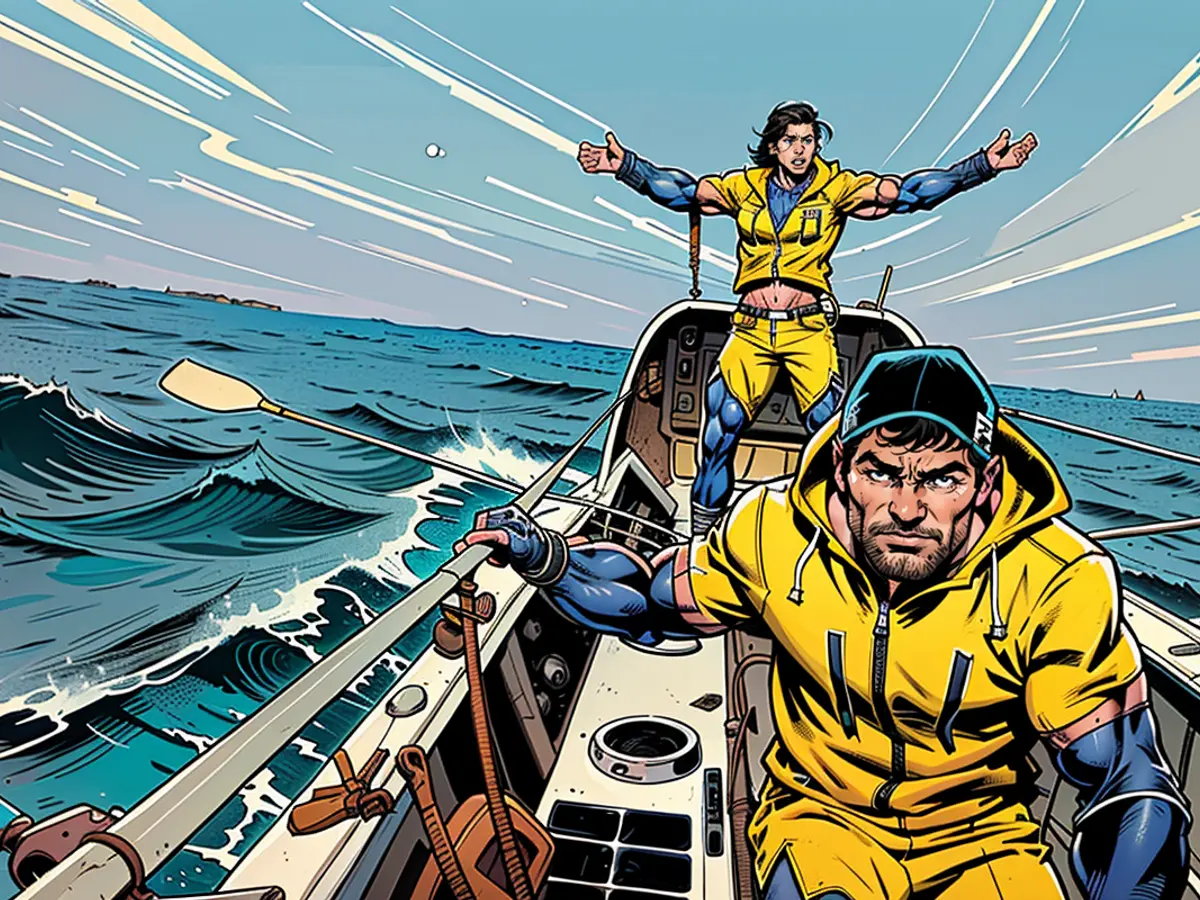
Setting off on their voyage for a higher purpose, of course, came with the perk of meeting Fox himself, a man they remember watching as teenagers, especially in that one film where he takes a pretty big adventure of his own.
“He is one of the most incredible people I’ve ever been around,” Morrissey said. “Humor, incredible, down-to-Earth – just everything that you think of somebody you look up to.”
Cusick added: “It was remarkable to spend time [with him], and it just deepened the meaning behind what we were doing – beyond just four guys trying to test their bodies and minds on the ocean.”
“Parkinson’s patients are experts on endurance,” Fox said in a video shared by his foundation about Morrissey’s adventure. “We have to endure every day to get through the things we need to do and with the limitations we have and setbacks we have. So when people do things like this, it’s such an act of solidarity and understanding and support.”
Ready oar not
Their first team gathering occurred in April 2023 in Redwood City, California for their first training row. At that point, they still weren’t sure if Morrissey’s ambitions were realistic. They didn’t know how his body was going to handle the rigorous training.
With the help of a trainer and medical guidance, they learned all that mattered: Morrissey could keep up.
“It was a great experience and a goal-setting for me to see what my body can continue to do,” he said. “Very surprised, but it did pretty well.”
An understatement, according to his teammates.
“It has been amazing to watch Pat undertake this journey and walk this path with him. From the day he joined the team, he has has attacked each moment with tenacity, grit and determination,” Durso said. “And he did everything with grace and unquestioning faith in what we were trying to accomplish.”
The team didn’t need another sign that moving ahead with their plan was a good idea, but they got one. During training, Morrissey learned that his tremors would actually improve from the methodic, calming movement of rowing, so much so that once in a while, they would cease completely.
During their 41-days on the water, it was occasionally a different story. The stress of the conditions and fatigue could take a toll on him and result in complications, particularly on his right side.
When that would happen, at his team’s encouragement, Morrissey would take a shift off to get extra rest, fearing that if he kept pushing himself, he’d need even longer to recover after. Putting extra “burden” on his teammates was hard to swallow.
“Those were probably my hardest times,” he said.
Conditions on the water were ever-changing.
One moment, the current would be against them and the weather forecast would catch them by surprise in the worst way. The next, still waters would surround them as the perfectclassic American rock song would come on, and they’d burst into song.
Morrissey, too, remembered the sunrises. Godly is a good word for them, he said.
“Every day had moments — some moments that felt rather protracted — replete with joy, levity, and/or poignance or unanticipated challenges to our bodies, psyches and spirits,” Forman said. “Many of these moments evoked insatiable laughter or tears or genuine introspective wonder. Other moments required the summoning of courage and the inspiration to endure from a seldom previously untapped depth of our beings. I constantly reminded myself that the moments would pass.”
Cusick remembered one instance when he struggled to pick up the oars due to exhaustion, and Durso reminded him of the words on the back of their shirts: “Inspired to endure.”
“We lifted each other up pretty hard throughout the endeavor,” Cusick said.
Morrissey got choked up when he recalled the judgement-free, unconditional support he received from his teammates while out on the boat.
“I love them for it,” he said.
He couldn’t have done it without him, but, the truth is, neither could they.
Without Morrissey’s courage and wild desire to raise his hand for a challenge most would never dream of attempting, their effort would not have become what it did and what it has.
Morrissey said he sees it this way: “If you put the right people around you” — in a boat or not — “you can pretty much achieve anything.”
Inspired by Morrissey's determination, the team organized various entertainment events to raise additional funds for Parkinson's research. They hosted charity concerts, movie screenings, and comedy nights, attracting a large crowd and generating substantial donations.
During their meals on the boat, the team would often break the monotony with entertaining activities. They engaged in friendly debates, shared stories, and even performed impromptu skits, creating a fun and lively atmosphere that helped them cope with the challenging conditions and long hours at sea.
